White House's Sullivan And Saudi Crown Prince Discuss Iran, Yemen
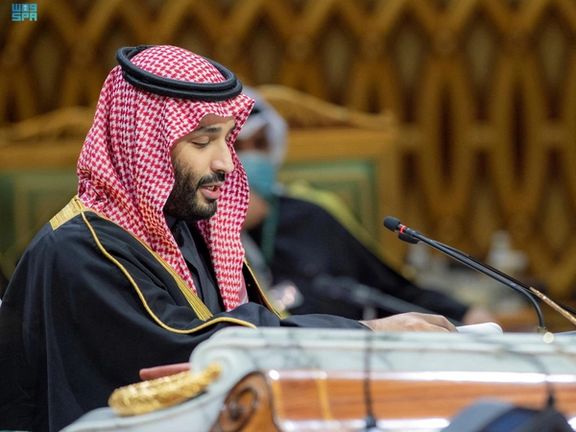
US national security adviser Jake Sullivan spoke with Saudi Arabia's Crown Prince Mohammed bin Salman Tuesday and discussed Iran and Yemen, the White House said.

US national security adviser Jake Sullivan spoke with Saudi Arabia's Crown Prince Mohammed bin Salman Tuesday and discussed Iran and Yemen, the White House said.
The call comes after Beijing recently brokered a deal to restore relations between Saudi Arabia and Iran, a process the United States was largely left out of.
The foreign ministers of Iran and Saudi Arabia met in Beijing last week after agreeing to end their diplomatic rift following years of hostility that fueled conflicts across the Middle East.
"Mr. Sullivan and Crown Prince Salman also discussed broader trends toward de-escalation in the region, while underscoring the need to maintain deterrence against threats from Iran and elsewhere. Mr. Sullivan reaffirmed President (Joe) Biden’s unwavering commitment to ensure Iran can never acquire a nuclear weapon," the White House said in a statement late on Tuesday.
Saudi Arabia and Iran, the Gulf’s dominant Sunni Muslim and Shi’ite Muslim powers respectively, have launched arrangements to reopen embassies and consulates within the two-month period stipulated in their deal brokered by China.
Beijing's role was seen by some experts as signaling a loss of influence by the United States with Saudi Arabia, amid tensions between the long-time allies over a range of issues, including human rights and Saudi oil production cuts.
Saudi and Omani delegations held talks with Houthi officials in Yemen's capital Sanaa on Sunday, as Riyadh seeks a permanent ceasefire to end its military involvement in the country's long-running war.
Yemen's war is seen as one of several proxy battles between Iran and Saudi Arabia. The Houthis, aligned with Iran, ousted a Saudi-backed government from Sanaa in late 2014, and have de facto control of north Yemen.
Reuters report
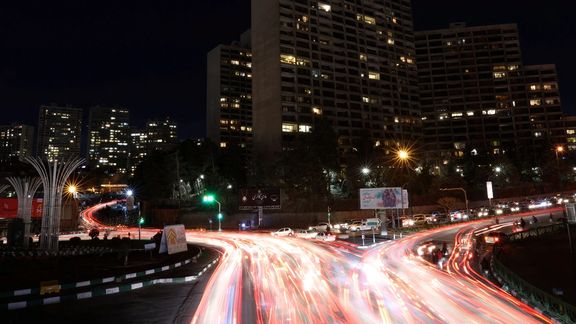
An academic in Iran has accused hardliners of pushing the country toward a civil war and has warned that Iranian should not get used to the smell of blood.
Political scientist Jahanbakhsh Mohebbinia told Rouydad24 website that "Iran is moving in a direction that it would be a surprise if there are no killings in a week or in a month, and this is a dangerous situation for the country."
Speaking about the reasons why the 2022 protests in Iran led to violence, Mohebbinia said Iranian society has been always living with violence in recent decades. For nearly half of a century no one in the government has paid any attention to what the people want and not only those in the government, but everyone else including judges, university lecturers, taxi drivers and so on have always wanted to exercise their authority on the people. This creates an accrued hatred that can lead to an explosion.
The protests showed that the Iranian nation is now reacting to the existing authoritarianism, Mohebbinia argued. The people think the government is playing games with them. The government on the other hand, ignores the world's realities and if we continue this route we are going to end up in a quagmire and collapse. And particularly when the economy collapses, you cannot do anything to save the country.
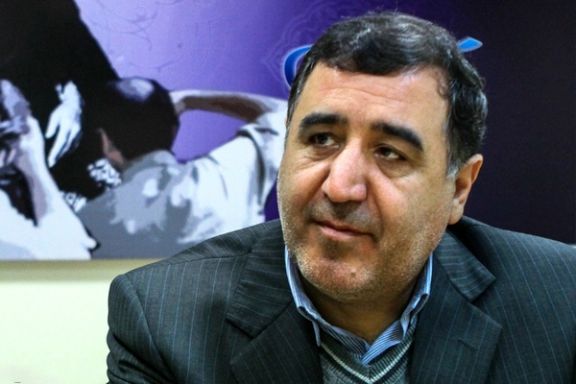
Mohebbinia added that when the government suppresses the protests, the wounds and hatred will be accrued, and the society will never see peace again. "I know that some people were even pushing the country toward a civil war." He advised that the government should hesitate when it thinks of another round of suppression because there is a potential for a civil war.
Many have been warning during recent weeks that the government's insistence on enforcing the compulsory hijab will inevitably bring two parts of the society at a dangerous logger head. He further charged that former US National Security Adviser John Bolton came up with the idea of a civil war in Iran when the government failed to handle the protests wisely. However, the accusation could be the academic's tactic to avoid a reaction by the government. As long as a pundit says something negative about the United States, he can secure a measure of protection for criticizing the government.
Mohebbinia said that the government should not approach the protests in Kurdistan or Khuzestan violently while even the capital Tehran has the potential for starting a civil war, similar to what happened in Yemen and Syria. He warned: "When you fan the fire of insecurity, economic crisis and cultural differences, the country could be divided into ten countries."
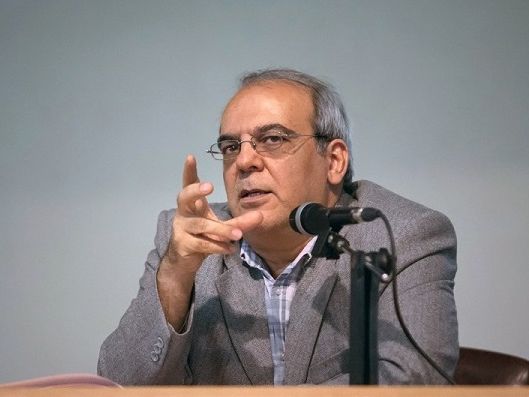
Meanwhile, reformist commentator Abbas Abdi warned that the regime’s zeal to enforce the hijab cannot succeed. "It is undoubtedly impossible to impose religious values by using force or introducing new laws."
Abdi said it is hard for the religious government in Iran to accept that that the people have turned away from religion during recent decades. Abdi probably did not want to mention that it was the mismanagement and inefficiency of the Islamic Republic as a religious government that has annoyed Iranians.
Abdi said that in the absence of real opinion surveys, the government does not admit that religion has lost its power. However, he said that observations show that fewer people in Iran go to mosques or fast during Ramadan or pay their religious 20 percent tax (Khoms). He added that fewer Iranians nowadays give religious names to their children compared even to 10 years ago.

Russia has started exporting gasoline and diesel to Iran by rail this year for the first time since it lost its traditional customers over its invasion of Ukraine.
Citing industry sources and exports data, Reuters said in report on Tuesday that in February and March Moscow supplied up to 30,000 tons of gasoline and diesel to its ally Tehran. Both countries are under Western sanctions that are pushing them closer in order to support their economies and undermine the punitive measures.
Last autumn Russia's Deputy Prime Minister Alexander Novak announced the start of swaping oil products with Iran, but actual shipments only started this year, Reuters sources said. All the volumes were supplied by rail from Russia via Kazakhstan and Turkmenistan.
The report did not say why Iran is importing fuel from Russia, but the more plausible scenarios seem to be one of the following.
The Islamic Republic may need the fuel to be able to maintain its electricity generation and production of petrochemicals. Iran needs natural gas or diesel to run its power stations and refineries and is facing a serious shortage of both.
Another possibility is that Iran’s government or the IRGC are exporting the fuel to other countries. If this is the case, Moscow must have been selling the fuel very cheap leaving a margin of profit for Iran.
One of the Reuters sources said that some gasoline cargoes were sent on from Iran to neighboring states, including Iraq, by truck. This strengthens the speculation about Iran trafficking the gasoline for profit.
The Islamic Republic has been reporting a substantial rise in domestic consumption of gasoline and diesel in recent months. The consumption of fuel in Iran, an oil producer with its own refineries, had exceeded domestic fuel production, especially in its northern provinces, Reuters quoted a trader in Central Asian oil products market as saying.
However, the question is how could consumption increase in a country gripped by high inflation, economic stagnation and rising poverty.
The unprecedented daily gasoline consumption of 144 million liters, repeatedly announced in late March and April, is 50 percent higher than Iran’s average daily consumption in recent years.
This could be an attempt to explain away imports of Russian fuel, while hiding the fact that the cargoes are actually being exported.
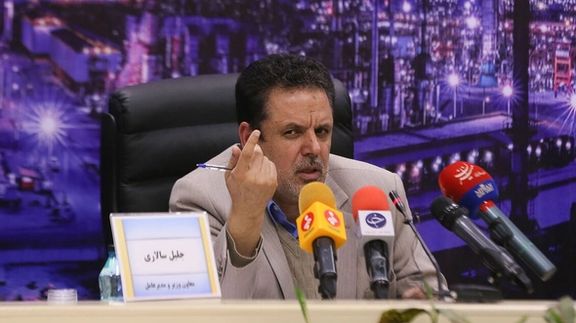
Head of National Iranian Oil Refining and Distribution Company (NIORDC) Jalil Salari said on February 22 that “the gasoline consumption is around 103 to 104 million liters per day, but the figure usually increases during Nowruz (New Year) holidays. However, considering that Nowruz coincides with the fasting month of Ramadan – when Muslims travel less frequently -- there may not be much change in gasoline consumption.”
But in March and April the government narrative changed, claiming a sudden jump to 144 million liters of daily consumption.
Russia had supplied small volumes of fuel to Iran by tanker via the Caspian Sea, as was the case in 2018, two traders familiar with the matter said. According to the report, Russian oil companies are currently interested in exporting diesel and gasoline to Iran by rail as exports by sea face high freight rates and a price cap imposed by the G7 countries.
However, the rail shipments face bottlenecks along the route too, with one of the sources saying that "We expect fuel supplies to Iran to rise this year, but we already see several issues with logistics due to rail congestion. That may keep exports from booming."
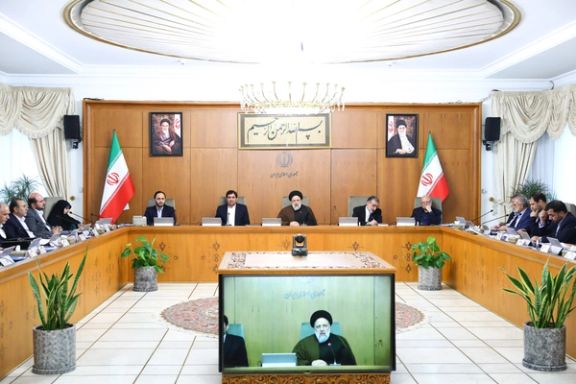
After almost one year of demands by lawmakers and commentators, and amid skyrocketing inflation Iranian President Ebrahim Raisi has replaced his budget chief.
Government Spokesman Ali Bahadori Jahromi said Tuesday that the head of the Planning and Budget Organization and the agriculture minister have been replaced.
According to Jahromi, Davoud Manzour who headed the Iranian National Tax Administration has been appointed as caretaker head of the Planning and Budget Organization to replace Masoud Mirkazemi.
“Mirkazmi had requested from the president several times to be replaced due to a heart problem,” claimed Jahromi.
The Central Bank of Iran announced late March that the annual inflation rate stands at 46.5 percent. Although the official inflation rate announced by the authorities is usually less than what it seems in the market, even a 46.5-percent inflation is among the highest in Iran in more than 30 years.
The government spokesman also said during his press conference that Mohammad Aghamiri, Head of the Iran Veterinary Organization has replaced Javad Sadatinejad as the acting agriculture minister.
Earlier this month, Iran’s Minister of Education Yousef Nouri resigned amid widespread discontent at a delay in the payment of salaries for teachers.
President Raisi accepted Nouri’s resignation and appointed Reza Morad Sahraee, the current president of Farhangian University, as the caretaker minister.
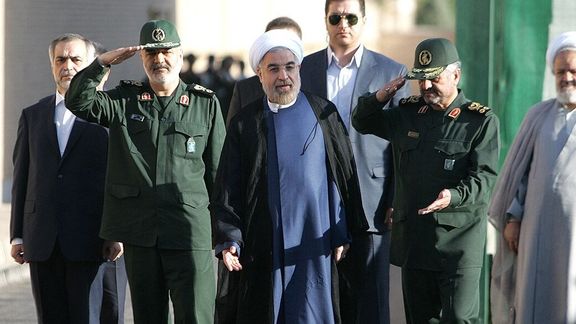
Despite lack of any evidence, IRGC-affiliated Tasnim news claims that former Iranian president Hassan Rouhani is preparing to run for parliament next March.
The short report Tuesday did not provide any evidence or sources, but said Rouhani convenes his election meetings with aides on weekly basis.
Rouhani or people close to him have not said anything about the elections or his political plans and there are no reports of him having formed an election team.
Iran’s hardliners and the Revolutionary Guard who control the current parliament are opposed to Rouhani or any other politician who in Iran’s political context can be described as centrist or reformist.
Tasnim makes that clear, repeating harsh criticism routinely voiced by hardliners that the country’s current economic crisis is the fault of the Rouhani administration, which they say counted on good relations with West and lifting of sanctions instead of presumably focusing on indigenous efforts to boost production.
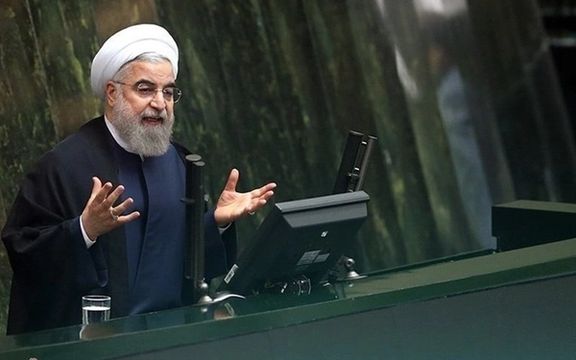
However, since Rouhani left office in mid-2021, the hardliners who took over both the presidency and the parliament have made matters much worse.
Iran’s currency has halved in value since August 2021 and inflation has soured above an annual 40-percent rate.
The current members of parliament have very little to show after three years into their term and given months of anti-regime protests they are very nervous about their re-election according to commentators who write in Tehran media.
Last week, news emerged that some lawmakers are entertaining the idea of barring anyone who in the past has served three terms in the legislator from running next year. Already, several politicians and pundits have sharply criticized the possible move, saying that this is only aimed at eliminating competition to the sitting parliament packed with hardliners.
But given the fact that in the 2020 elections most centrists and reformists were barred from running by the Guardian Council controlled by Supreme Leader Ali Khamenei, Rouhani would not risk putting his candidacy forward unless he receives assurances from him that he would not be rejected. He has already said that next elections must be free and fair.
Also, as a former president, Rouhani would run only if he can receive backing by the majority in the new parliament to be crowned Speaker. For that, “He would need to have a sizeable contingent of supporters, which means that Khamenei has to allow non-hardliners also to run and get elected,” political analyst Behrouz Turani told Iran International. He also said, “The report by Tasnim could be a ploy to test Rouhani and see if he will deny any intention to run next year.”
It should also be noted that the Iranian campaigns typically do not start months before an election.
For now, no one knows what the Supreme Leader is thinking. His strategy of handing over both the parliament and the presidency to loyal, ultra-conservative politicians and operatives has backfired.
Not only the economy has sunk deeper into crisis, but the Islamic Republic faces the largest popular opposition in its 44-year history. Even many loyalists express total disappointment with President Ebrahim Raisi and the parliament in the local media.
In the past, Khamenei has played the political game of allowing reformists to win elections to mollify a dissatisfied population, and he might decide to play the same game again, but Rouhani during his presidency has made it clear that he was not happy with Khamenei’s and IRGC’s interference in the affairs of the government.
Moreover, some voices have raised the issue of a constitutional change, meaning to eliminate or restrict outfits that are Khamenei’s tools for interference.
After massive protests and lingering instability, this time the political atmosphere will be different from past elections. Either Khamenei has to double down in supporting the hardliners or has to allow other regime insiders frustrated with him and angry with the IRGC to take over the parliament.
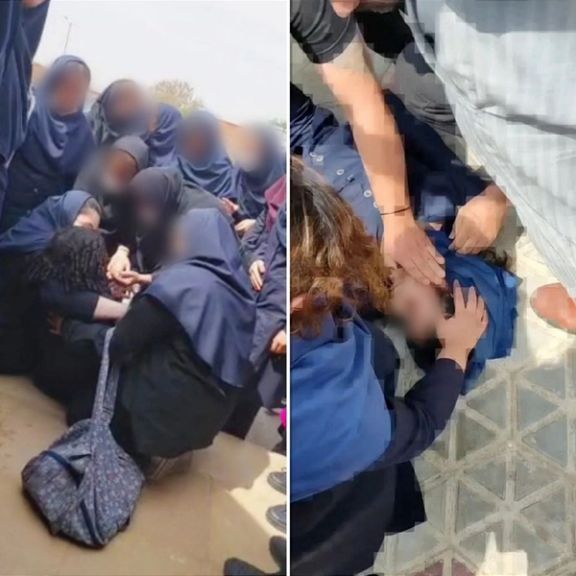
Schools in several cities of Iran witnessed suspicious chemical attacks once again on Tuesday, with poisoned students transferred to medical centers.
This comes as the Ministry of Islamic Guidance has sent a notice to the local media to censor the news related to the attacks.
Several schools in Tabriz, Esfahan, Shahinshahr, Genaveh, Kermanshah, Oshnaviyeh, and Kamyaran have witnessed suspected poisoning attacks on the students.
Eyewitnesses from the central city of Esfahan say "Two ambulances were sent to Shayan girls school, but none of them had oxygen masks and as a result several students lost consciousness."
Some others from Shahinshahr in Esfahan province also say that a school was subjected to a chemical attack but "they [officials] locked the door and did not allow the poisoned students to leave."
In the city of Kamyaran in western Kordestan province, at least 12 female students of a primary school have been transferred to hospital.
Meanwhile, the Hengaw human rights organization reported that several school principals in Baneh, Kordestan have called on the families not to send their children to school "until full security is provided".
More than four months after the suspected poisonings across hundreds of schools, the country is no closer to finding answers.
According to Deputy Health Minister Saeed Karimi, since the poisonings began on November 30, at least 13,000 female students were taken to medical centers due to suspected gas poisoning.